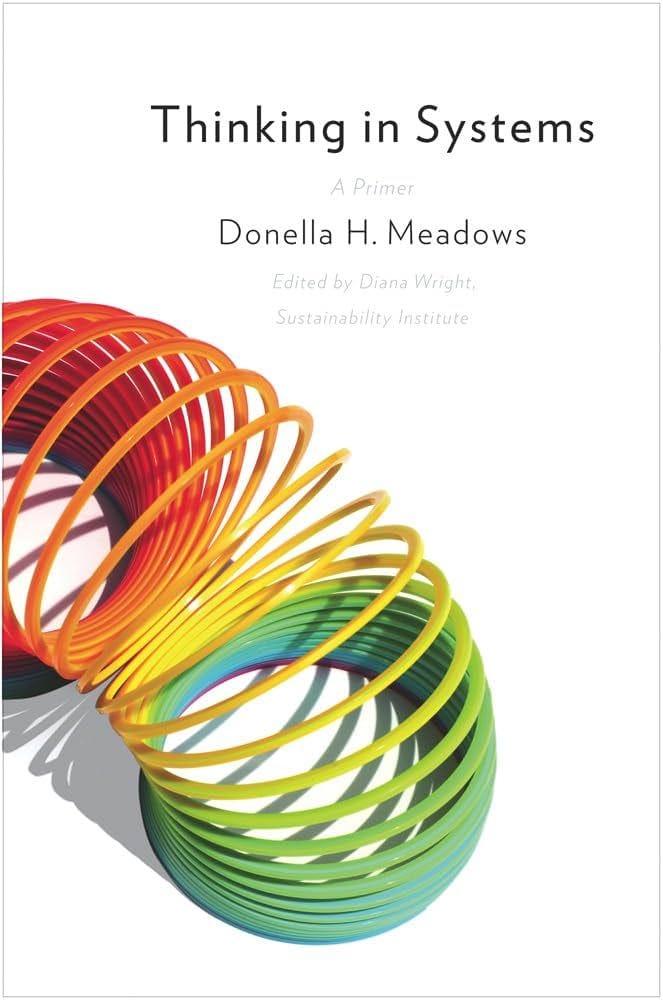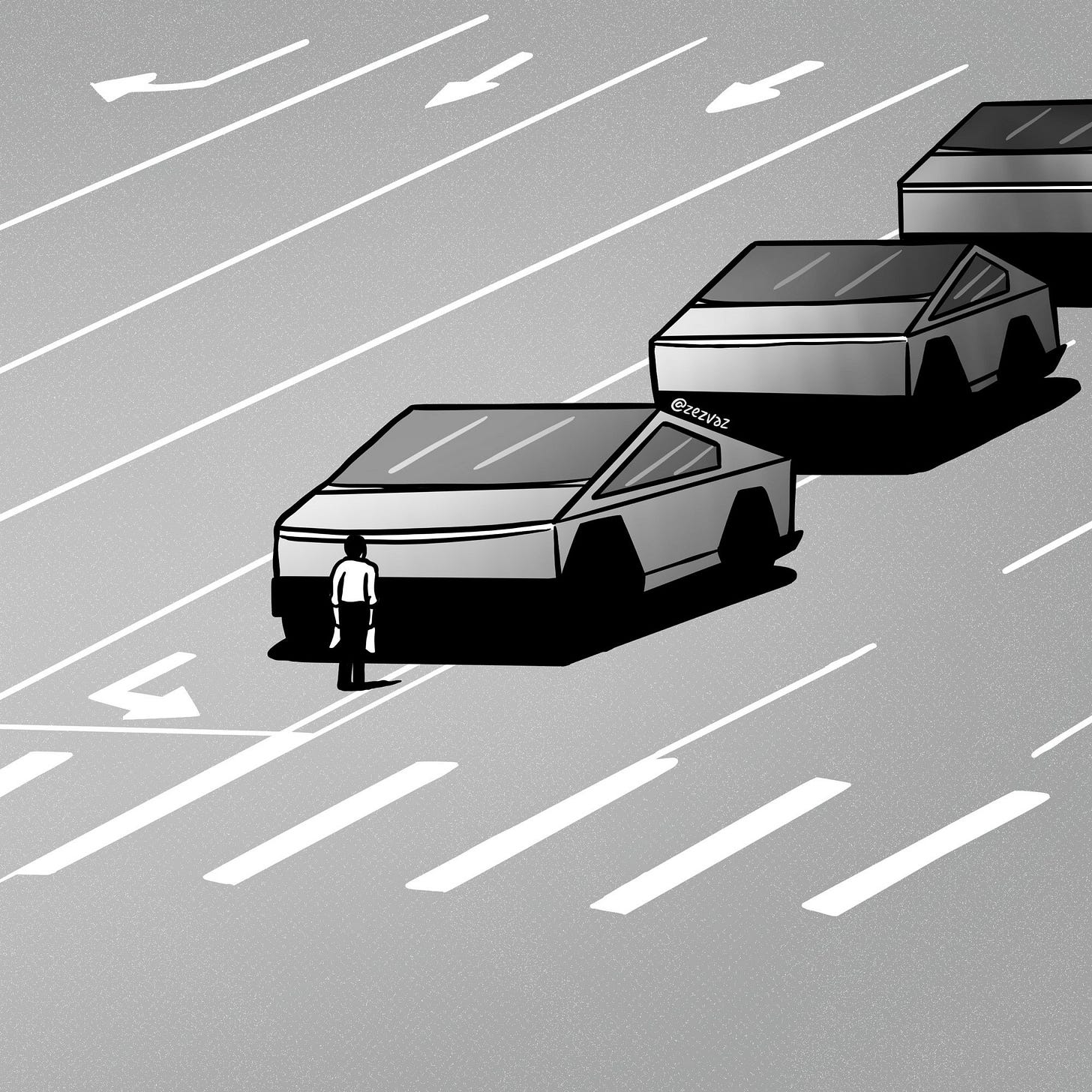💎 Friday Gems (A Work Gatha, Slow Down, World of Systems, and much more!)
As above, so below. As within, so without. As the Universe, so the soul.

There is power in groups.
Currently I’m fasting during the month of Ramadan and have experienced mental and physical changes such as increased focus, mental clarity, and weight loss. I have tried intermittent fasting before but wasn’t able to continue it for longer periods of time to notice any positive effects.
One reason for this I believe is that I have group support. Since I am fasting with my family and not alone, I know the temptations to eat will be less.
I recently took a course in Systems Mapping and the coursework included group work after each section. The group work helped us learn and apply the new ideas because we discussed and interacted with each other as we were mapping a system which helped deepen our knowledge and understanding.
As the African proverb goes, “If you want to go fast, go alone. If you want to go far, go together.” I’m usually one to do things alone so I can go faster with less back and forth but there are times when we gain from the interactions, ideas, and the valuable experiences of others.
There is power in groups. ✊🏽
On to this week’s gems.
Today's Gems 👀
Mindfulness: 🤘🏽 Start your day with intentionality
Slow Movement: 🌱 Slow Your Roll!
The Mindful Designer: 🌏 Living In a World of Systems
Wisdom: 💡 Accepting all parts of ourselves
Mindfulness
🤘🏽 Start your day with intentionality
It’s easy to rush into the day and become consumed by the waves of meetings and deliverables but what if we took a moment before we start by making intention of how we would like to show up.
I have taped the work gatha up on the wall by my desk where I can see it at all times and have been reciting it before I start every morning. I appreciate the mindful reminder of bringing my whole self to each task and interaction during the day while also tampering down my ego when needed.
🔗 Work Gatha by David Spinks
Slow Movement
🌱 Slow Your Roll!
The concept of Slow TV is to show something at the rate it is experienced, as opposed to the speed with which a narrative drama is told. There is no editing or script, as it’s built around transition and movement instead of tension and plot. It goes beyond definitions of “naturalism,” which still condenses human experience into bitesize pieces. It is the portrayal of often mundane experiences in real-time, like a train journey or knitting, as a human would experience it.
I love the idea of Slow TV to connect with experiences as they actually happen.
No editing.
No dialogue.
No selling.
Just a moment of calmness.
A life lived observing the principles of slow philosophy is a life spent “savoring the hours and minutes rather than just counting them”
Slow TV helps us be in the immediate present without all the noise and distractions of dialogue and drama so we can connect with nature and within ourselves.
🔗 Slow Down With Norway’s Slow TV by Scandinavia Standard
Systems Thinking
🌏 Living In a World of Systems
We are a collection of systems, living in a world of systems.
Systems thinking is a way of making sense of the complexity of the world by looking at it in terms of wholes and relationships rather than by splitting it down into its parts.
This video, In a world of systems, narrated and illustrated by David Macaulay, who also wrote and illustrated The Way Things Work, another great book about the systems around us, does a great job of explaining the systems we interact with and are part of in our everyday lives from the water system in our homes to the traffic system we encounter.


David Macaulay explains the systems thinking concepts such as:
Causal loop diagrams - A visual representation of systems and how the parts interact with each other. For example, the amount of money you have in the bank and how your income and spending affect that amount.
Stock - The quantity of the thing we are measuring at a specific point in time. For example, the amount of money in your bank account at a specific time.
Flow - The rate of change of the stock or activity over a period of time. For example, the rate of money that goes in and out of your account.
Delay - The amount of time it takes for the parts of a system to influence each other. For example, getting paid every two weeks vs. every month is a delay in the loop to add to the total balance in your bank account.
Reinforcing loops - These are loops where change in one part of the loop causes a change in another part of the loop in the same direction causing growth or decay. Compound interest is a great example for this. The more money you have in your account, the more interest you earn which increases the amount of money in your account.
Balancing loops - These are loops that bring a system back to the desired state. For example, if your bank account is below a certain level, the bank charges you a fee, so you deposit money to bring the balance up so you don’t get charged the extra fee.
Systems thinking s a fascinating topic and the first book you must read, or in my case listen to is Thinking in Systems by Donella Meadows.
“Let's face it, the universe is messy. It is nonlinear, turbulent, and chaotic. It is dynamic. It spends its time in transient behavior on its way to somewhere else, not in mathematically neat equilibria. It self-organizes and evolves. It creates diversity, not uniformity. That's what makes the world interesting, that's what makes it beautiful, and that's what makes it work.”
― Donella H. Meadows, Thinking In Systems: A Primer
I consider this book the bible of Systems Thinking.
In the book, Donella Meadows explains the core concepts with real life examples to help the reader understand the terms and make the real world connections. But I warn you that you will not see your world the same, which is a good thing.
🔗 In A World of Systems narrated and illustrated by David Macaulay (of "How Things Work")
Political
✊🏽 Cyber Truck Man
Fight Nazism!
A retelling of the iconic Tiananmen Square photo for the dangerous times we live in.
Resist! ✊🏽
Credit: Zez Vaz
Wisdom
💡 Accepting all parts of ourselves
The degree to which a person can grow is in direct proportion to the amount of truth they can accept about themselves without running away
Anonymous
That’s it for this week’s Friday Gems.
May curiosity be your guide!









